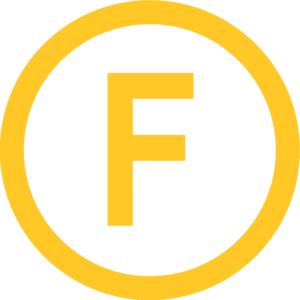The Netherlands, a hub for international business, offers numerous office jobs for English speakers in cities like Amsterdam, Rotterdam, and Utrecht. Multinational companies in tech, finance, and logistics, such as Philips, ING, and Nike, drive demand for roles like administrative assistants, customer service representatives, and HR specialists. With over 90% of Dutch citizens speaking English, the country ranks highest globally for non-native English proficiency, making it ideal for English-only professionals. Non-EU citizens can secure these jobs with visa sponsorship, particularly in sectors facing skill shortages. Salaries typically range from €30,000–€50,000/year, depending on role and experience.
Types of Office Jobs Available
- Administrative Assistant
Handles tasks like scheduling, email management, and data entry. Requires organizational skills and proficiency in Microsoft Office. No Dutch language skills are needed in international firms. - Customer Service Representative
Manages client inquiries via phone, email, or chat, often in English or multilingual settings. Strong communication skills are essential, with additional languages like French or German boosting prospects. - HR Specialist
Supports recruitment, onboarding, and employee relations in multinational companies. Knowledge of HR software and English fluency are key; Dutch is rarely required. - Data Entry Clerk
Inputs and manages data in systems like Excel or CRM platforms. Attention to detail and typing speed (50+ WPM) are critical. Entry-level roles suit beginners. - Marketing Assistant
A less frequent yet valuable role: assists in social media management, campaign tracking, and content coordination. English is essential; familiarity with platforms like HubSpot or Canva is useful. - Finance Assistant
Performs invoice processing, expense tracking, and basic accounting. Proficiency in Excel and soft knowledge of IFRS (International Financial Reporting Standards) may be necessary. - Office Coordinator
Manages supplier relationships, maintains office supplies, and arranges events. Strong organizational and negotiation skills are a plus.
Salary and Benefits Insights
- Administrative Assistant: €28,000–€40,000/year (€13–€19/hour).
- Customer Service Representative: €30,000–€45,000/year (€14–€21/hour).
- HR Specialist: €35,000–€50,000/year (€17–€24/hour).
- Data Entry Clerk: €26,000–€35,000/year (€12–€17/hour).
Benefits often exceed statutory standards, with health insurance contributions, 25–30 vacation days, and generous pension plans. Companies frequently support visa fees and relocation costs, offer remote or hybrid work options, and subsidize language training or transport. In tech hubs, performance bonuses or stock options are common.
Visa Sponsorship and Work Permits
Non-EU citizens usually require a Highly Skilled Migrant Visa or EU Blue Card. The Netherlands Immigration and Naturalisation Service (IND) outlines essential requirements:
- A job offer from a recognized sponsor with a minimum salary of €5,008/month (2026 threshold for Highly Skilled Migrant Visa) or €45,300/year for EU Blue Card.
- English proficiency (B1 or higher, often assessed at interview).
- A clean criminal record and valid passport.
- Relevant qualifications (e.g., bachelor’s degree for HR or specialist roles; not always required for entry-level positions).
Employers initiate the visa application, typically approved within 2–4 weeks. Costs range from €320–€600, often covered by the employer. For local job listings and application guidance, consult the Dutch Employment Agency.
Application Process for Office Jobs
- Find Opportunities
Use international job platforms like EURES, LinkedIn, and specialized recruitment agencies such as Randstad or Undutchables. Search for roles tagged with “visa sponsorship” or “English spoken”. - Tailor Your CV
Opt for a clear, concise Dutch-style CV (1–2 pages), highlighting office skills, software expertise (e.g., Salesforce, Excel), and multiple language competencies. Add a cover letter that emphasizes your relocation readiness, adaptability, and soft skills like team orientation and international mindset. - Secure a Job Offer
Prioritize companies with IND-approved sponsor status by checking their listing on the IND’s official sponsor register. Confirm that they’re aware of visa salary thresholds and capable of supporting your application. - Visa Application
Submit required documents—passport, job contract, diplomas, and proof of English proficiency (e.g., IELTS B1+). Attend a biometric appointment at your local Dutch consulate or embassy. Once approved, you’ll receive a temporary residence permit to collect your BSN. - Relocate
Budget €3,000–€7,000 for flights, visa costs, housing deposit, and settling expenses. After arrival, register with the municipality for a Citizen Service Number (BSN), which you’ll need for taxation, healthcare, and banking.
Key Requirements and Skills
- Education: Bachelor’s degree preferred for HR or administrative roles; high school diploma sufficient for data entry and assistant positions.
- Skills: Proficiency in Microsoft Office (Excel, Word, Outlook), communication, multitasking, and attention to detail. Additional language skills (Spanish, German, French) are advantages for customer-facing roles.
- Experience: 1–3 years in office environments for mid-level roles; entry-level positions may require minimal experience.
- Certifications: Basic IT certifications or HR certifications (like SHRM) strengthen applications but are optional.
Cost of Living and Budgeting
Monthly expenses vary by city:
- Amsterdam: €1,200–€2,000 for shared housing, €300–€500 for food, €80–€150 for transport.
- Rotterdam/Utrecht: €800–€1,500 for rent, €250–€400 for food, €60–€120 for transport.
Total monthly costs can range between €1,500–€3,000. Employer-provided transport passes or meal vouchers often help reduce these expenses. Plan for €5,000–€10,000 for relocation costs, including initial housing deposits and travel.
Cultural and Workplace Integration
Dutch work culture emphasizes direct communication, punctuality, and a flat hierarchy. Weekly working hours typically range from 36–40, with flexible schedules and remote options becoming standard. English is commonly used in international offices; knowing basic Dutch (A1–A2 level) aids day-to-day life and long-term integration. Joining expat networks in Amsterdam and Rotterdam or attending workplace social events helps build connections. Libraries and local community centers (buurthuizen) often offer affordable Dutch language classes supported by the IND.
Pathway to Permanent Residency
After 5 years of continuous residence as a Highly Skilled Migrant, you can apply for permanent residency, allowing full access to the EU job market, healthcare, and social benefits. Holding roles in high-demand industries such as tech, finance, and logistics increases your chances of securing long-term employment and residency.
Top Locations for Office Jobs
- Amsterdam: Major hub for tech and finance multinationals, with high demand for HR, admin, and customer service roles.
- Rotterdam: Logistics and trade center, with opportunities at companies like Unilever and DHL.
- Utrecht: Emerging tech scene, ideal for entry-level data entry and office coordination roles.
- The Hague: A center for international organizations and NGOs, offering multilingual customer service positions.
Practical Tips for Success
- Target Multinationals: Companies like Accenture, Philips, Nike, and Heineken commonly sponsor visas and maintain IND-approved status.
- Highlight Language Skills: Make sure to feature your English fluency and any additional languages prominently in applications.
- Network: Attend career fairs, such as those hosted by EURES or local universities, and connect with recruiters on LinkedIn.
- Learn Basic Dutch: Free tools like Duolingo help you learn A1–A2 level Dutch quickly, which goes a long way in daily life.
- Verify Sponsorship: Always confirm an employer’s sponsor status via the IND before applying or signing contracts to ensure they can lawfully hire you.






